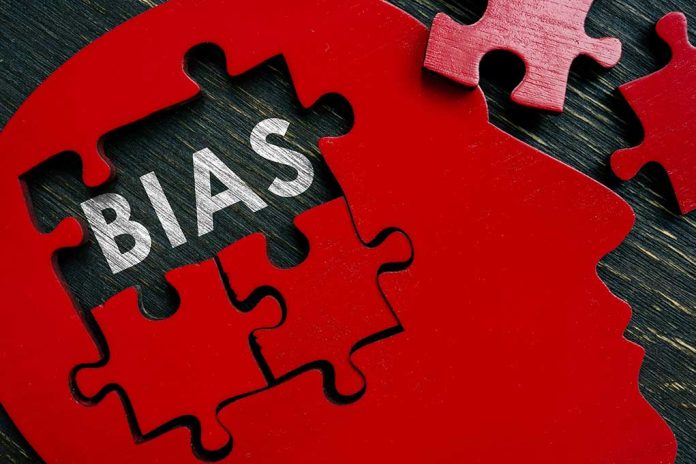
Wikipedia, once a bastion of neutrality, now stands accused of blatantly favoring leftist ideologies and excluding conservative voices.
At a Glance
- Wikipedia accused of drifting from neutrality, favoring leftist ideologies
- Conservative media sources allegedly excluded from approved sources list
- Left-leaning sources seemingly prioritized, raising questions about impartiality
- Concerns about Wikipedia’s role in shaping public information landscapes
- Calls for accountability and investigation into Wikipedia’s tax-free status
The Fall of Neutrality
Wikipedia, the go-to source for quick information on virtually any topic, is facing serious allegations of bias. The Media Research Center has sounded the alarm, claiming that the online encyclopedia has strayed far from its foundational principle of neutrality. This drift isn’t subtle; it’s a seismic shift that’s tilting the platform decidedly leftward, leaving conservative voices out in the cold.
The crux of the issue? Wikipedia’s alleged systematic blacklisting of right-leaning media outlets. This isn’t just about a few conservative blogs being overlooked. We’re talking about major players in the conservative media landscape, including Fox News, being shut out of the party. Meanwhile, left-leaning publications are getting the VIP treatment, deemed “reliable” and given free rein to shape narratives.
The Hypocrisy of “Neutral Point of View”
Wikipedia touts its “neutral point of view” policy as a cornerstone of its mission. But actions speak louder than words, and the actions here are screaming bias. This policy, it seems, is being applied with all the precision of a sledgehammer, conveniently sidelining conservative viewpoints while elevating leftist perspectives.
The double standard is glaring. Respected conservative outlets like The Daily Wire and Breitbart find themselves on Wikipedia’s blacklist, while left-leaning publications are embraced with open arms. This isn’t just unfair; it’s a deliberate distortion of the information landscape, creating an echo chamber that amplifies leftist narratives while silencing conservative voices.
Shaping Narratives, One Edit at a Time
The impact of this bias goes beyond mere representation. It’s actively shaping political narratives. Take, for instance, the stark contrast in how Wikipedia portrays Trump appointees versus Democratic figures. It’s like night and day, with conservative figures painted in the harshest light possible while their liberal counterparts bask in a flattering glow.
And let’s not forget the Hunter Biden laptop scandal or the Wuhan lab leak theory. These aren’t just news stories; they’re case studies in Wikipedia’s selective fact curation. While mainstream media outlets eventually caught up with reality, Wikipedia seemed stubbornly committed to its initial, left-leaning narrative, dismissing these stories as “Russian disinformation” long after that claim had been debunked.
The Call for Accountability
This isn’t just about hurt feelings or political squabbles. It’s about the integrity of information in the digital age. Wikipedia has positioned itself as a neutral arbiter of facts, a position that comes with immense responsibility. By seemingly abandoning this neutrality, it’s not just failing its users; it’s actively contributing to the polarization of public discourse.
The stakes are high, and the call for accountability is growing louder. There are even suggestions that Wikipedia’s tax-free status should be investigated. After all, if it’s going to act like a partisan platform, should it really enjoy the benefits of a non-profit educational resource?
As we navigate an increasingly complex information landscape, the need for truly neutral platforms has never been greater. Wikipedia’s alleged drift into partisan territory isn’t just disappointing; it’s dangerous. It’s time for a serious conversation about digital information governance and the role of these influential platforms in shaping public opinion. The future of informed discourse may well depend on it.






















